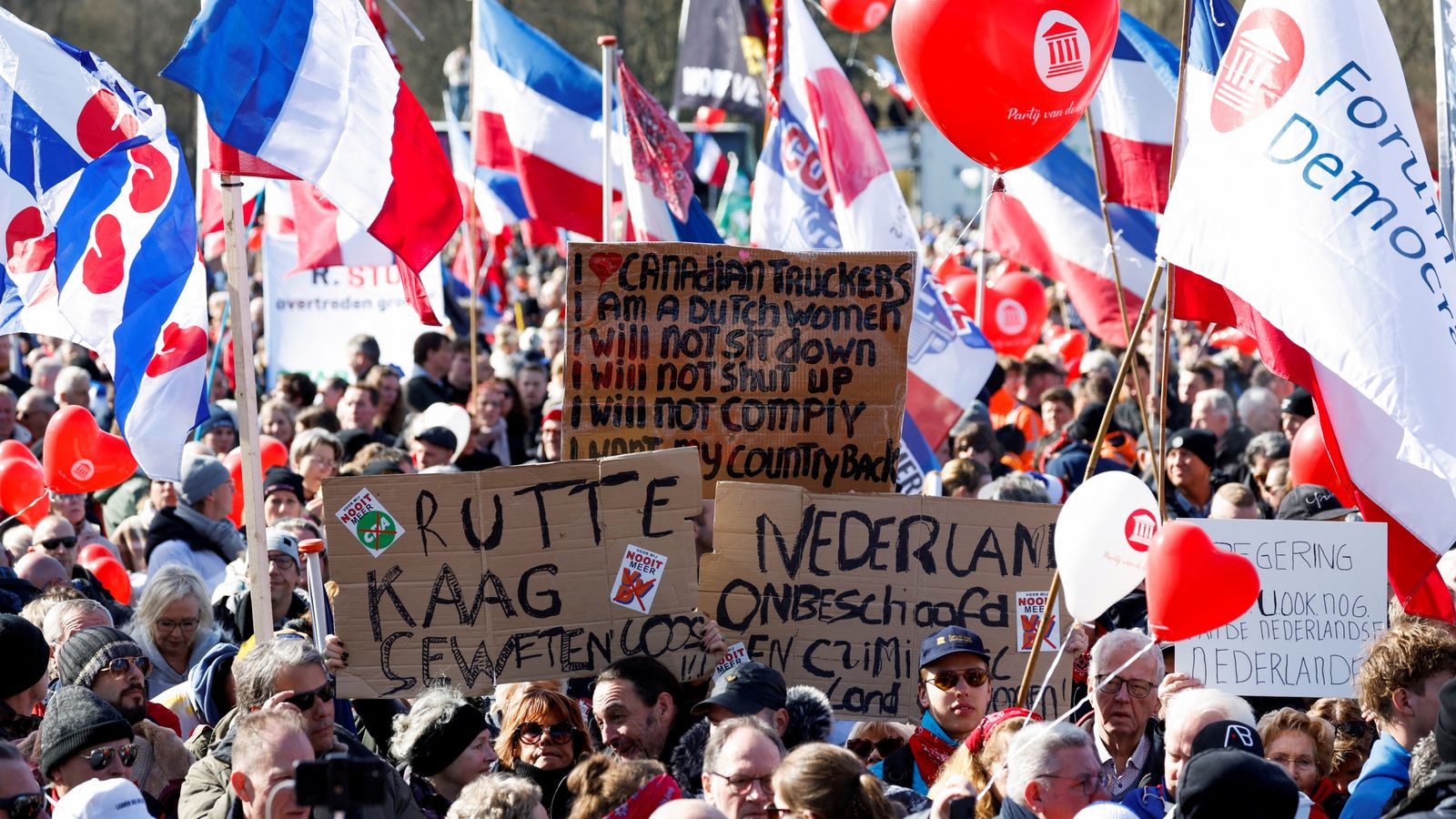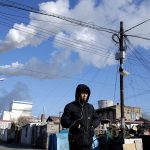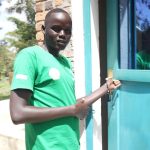A farmers’ protest party has shaken up the political landscape in the Netherlands as it emerges as the big winner in provincial elections, posing a big challenge the prime minister.
The Farmer-Citizen Movement party rode a wave of protests against the government’s environmental policies and now looks to be the emerging powerhouse of the Dutch centre ground.
BBB or BoerBurgerBeweging, as the party is called in Dutch, is a major threat to Prime Minister Mark Rutte and looks set to be in control of more Senate seats than the ruling conservative VVD party.
In the Senate, which has the power to block legislation agreed in the lower house of parliament, the prime minister’s party looks set to drop from 12 seats to 10 – while a first exit poll projected BBB to win 15 of a total of 75 available seats.
The national senators will be chosen at the end of May when the provincial lawmakers elected in Wednesday’s vote appoint them.
The meteoric rise of BBB is a major blow for Mr Rutte’s governing coalition, casting doubt over its aim to drastically cut nitrogen pollution on farms, the single issue upon which BBB was founded in 2019.
“Nobody can ignore us any longer,” BBB leader Caroline van der Plas told the Dutch broadcaster Radio 1.
China hits out at Dutch plan to limit export of semiconductor tech
Amsterdam to weed out cannabis in red light district
MH17: ‘Strong’ signs Vladimir Putin to blame for supplying missile that shot down passenger plane
“Voters have spoken out very clearly against this government’s policies.”
The heavy use of fertilizers and relatively large numbers of livestock has caused high levels of nitrogen oxides in soil and water, violating European Union regulations.
The government aims to halve nitrogen emissions by 2030.
Construction has been crippled in the Netherlands with environmental groups winning a string of court cases against the government, ordering them to limit the emissions and preserve nature, before new building permits can be granted.
The BBB says that the nitrogen problem has been exaggerated, arguing that proposed solutions are unfairly balanced against farmers – causing the closure of many farms and food production shortages.
The prime minister has failed to have a Senate majority since provincial elections in 2019, requiring deals with his mostly left-wing opponents to be negotiated.
His most cooperative allies, Labour and GreenLeft, look set to have retained their seats.
This keeps their combined seats on a par with the BoerBurgerBeweging, which could be enough to enable Mr Rutte to get his policies passed.
In the Lower House, BBB was only able to take one seat in 2021, but its popularity has surged as distrust of the government has grown and amid wider anger over issues such as immigration.
In its fourth consecutive term since 2010, Mr Rutte’s government has dropped to a 20% approval rating, its lowest in a decade.
This could be cause for concern for the current coalition in the next election.






















